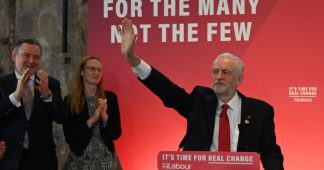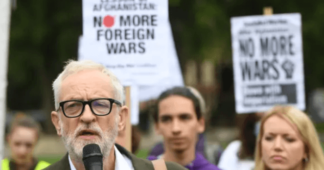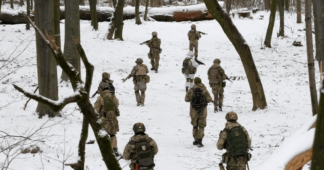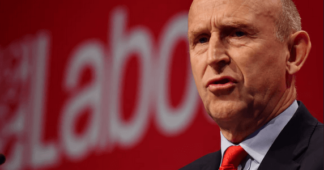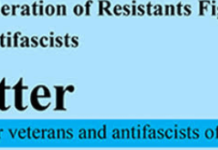LABOUR sources brief that attending a rally organised by Stop the War — the organiser of the largest demonstration in the history of our country — might now result in expulsion.
“Any Labour MPs who speak at anything that is anti-Nato from now on are likely to be out,” an anonymous official says.
This follows the agreement of left MPs who signed Stop the War’s statement on the Russian invasion of Ukraine to withdraw their names.
“Enemy within” smears are deployed in the industrial relations arena too. A ludicrous Telegraph attack piece tries to discredit transport workers on strike by drawing a spurious “connection between the industrial action called by the RMT union and Vladimir Putin’s blood-soaked invasion of a sovereign country.”
Recall Sir Keir Starmer’s claim that working-class households, already being clobbered by runaway inflation and falling incomes, should be prepared for “economic pain” as a result of sanctions on Russia. Even without sanctions the war is pushing up global energy and grain prices.
The pain is just beginning. Yet if workers and their unions stand up for themselves and demand a pay rise commensurate with rising prices, they are to be accused of disloyalty.
This will not trouble the Labour front bench, who from Coventry to London have shown they have no problem turning their backs on workers in struggle even without the excuse of a foreign war.
Hysteria and one-upmanship are creating a dangerous climate of intolerance. Cultural and sporting boycotts of Russia are supported by many who condemn boycotts of Israeli institutions complicit in the long-term occupation of Palestine.
Belarusian athletes are to suffer because their government facilitated Russia’s attack on Ukraine, though nobody has ever suggested British athletes should be punished because our government facilitates the Saudi Arabian war on Yemen, which has killed nearly 400,000 people, through logistical support and arms sales.
The consequences of the unthinking race to demonstrate opposition to Russia range from the comic (insurance comparison site Compare the Market’s decision to pull ads featuring a fictional meerkat oligarch) to the tragic (an Italian university cancelling a course on the great 19th-century Russian novelist Dostoevsky, though it appears to have reversed the decision after an outcry).
Some will argue that all of this is relatively insignificant compared to the horror unleashed by Russia’s invasion of Ukraine.
It is important nevertheless. Labour’s bid to ban comparisons of Russia’s actions with wars launched by the United States and its allies such as those in Yugoslavia, Afghanistan, Iraq and Libya does nothing to bring peace in Ukraine closer and raises the likelihood of future wars.
At a Ukrainian church service Starmer demonstrated this subconscious exceptionalism, describing the flood of refugees across borders and the devastation unleashed on Ukrainian cities as “images that we thought were consigned to the past,” though Saudi Arabia has been bombing residential areas in Yemen for seven years and the refugee flows from the conflicts in Afghanistan or Ethiopia are recent and huge.
None of this minimises the suffering of the Ukrainian people. But aside from the hypocrisy of banning criticism of “our” wars, there will be no return to peace if Western politicians cling to a unipolar moment that has passed — one in which the West had the power to break international law with impunity, but other countries were too weak to do so.
The only way to stop lawless acts like Russia’s is to fight for a world in which no country is allowed to behave like that. We do nothing to bring about such a world by selective amnesia about Nato aggression.
Nor should we allow the democratic space to debate foreign policy and oppose militarism to be shrunk by a Labour leadership more concerned with smashing its own left wing than international peace, something which could have a lasting negative effect on free speech in Britain.
Published at morningstaronline.co.uk
We remind our readers that publication of articles on our site does not mean that we agree with what is written. Our policy is to publish anything which we consider of interest, so as to assist our readers in forming their opinions. Sometimes we even publish articles with which we totally disagree, since we believe it is important for our readers to be informed on as wide a spectrum of views as possible.
